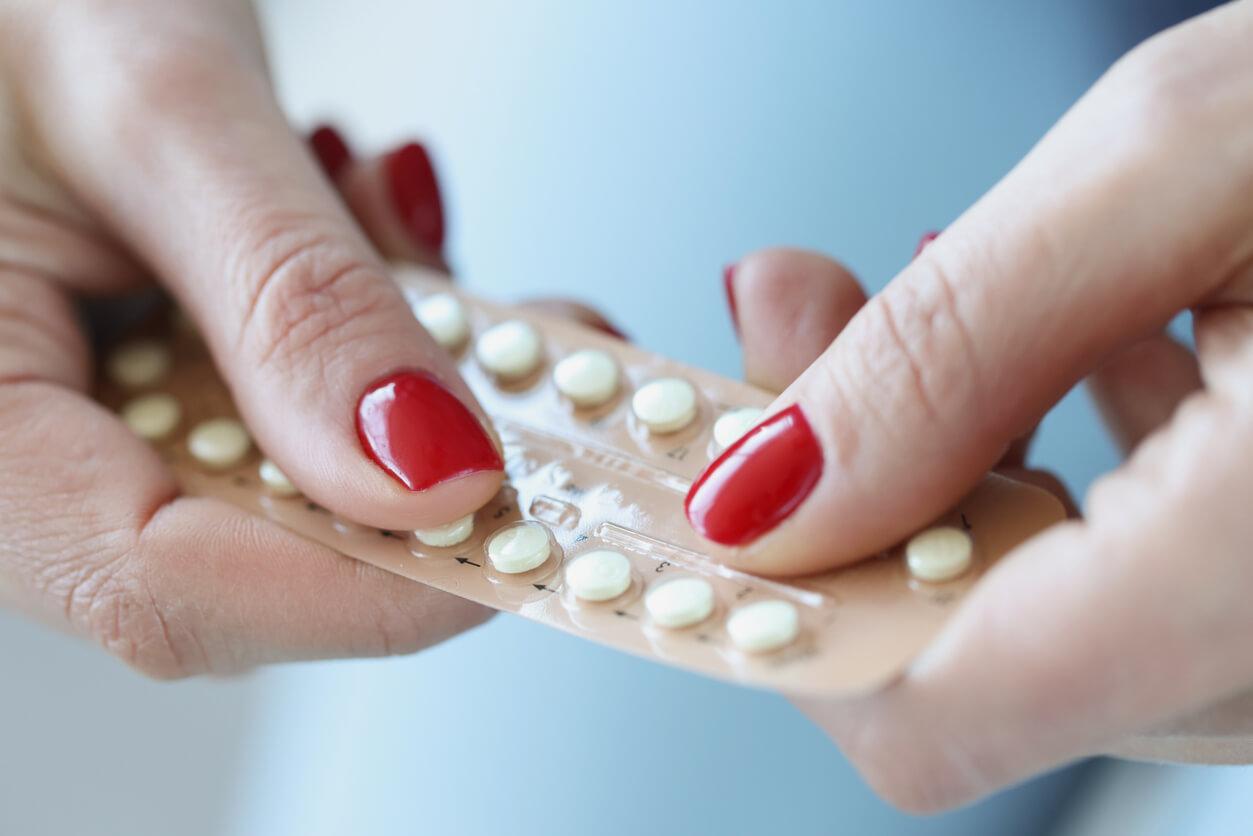Is IUD Weight Gain Real? Here Are The Facts
Is there a link between IUDs and weight gain? Here’s everything you need to know
It's common for people to wonder if weight gain is a side effect of most medications, including different birth control methods, like intrauterine devices (IUDs). IUDs are one of the most effective contraceptives available for women and people who menstruate.
In this article, we'll learn about the two different types of IUDs (hormonal and non-hormonal) and how they may affect weight. We'll also talk about how different IUDs work to prevent pregnancy and their most common side effects. We will also compare IUDs to different contraceptives, like birth control pills.
Do IUDs cause weight gain?
Some hormonal IUD brands may cause weight gain, but non-hormonal IUDs do not cause weight changes.
Weight gain is listed as a potential side effect of two hormonal IUD brands, Mirena and Liletta. Around 5% of people with a Mirena IUD and 6.1% of people with a Liletta IUD reported a weight increase since getting the device. This could be because hormonal IUDs release levonorgestrel, which may cause hormonal side effects. Typically, hormonal IUDs do not cause significant weight gain.
Unintentional weight gain while using an IUD may also be due to other factors like aging, lifestyle habits, certain medications, additional mental or physical health conditions or lifestyle changes.
Do you gain more weight on the pill or IUD?
Birth control pills and hormonal IUDs might indirectly cause weight gain for a small amount of people while non-hormonal IUDs do not cause weight gain.
Typically, during the use of hormonal contraceptives like birth control pills, weight can fluctuate slightly. Some of the side effects of the pill may include bloating or a small increase in fluid retention, not body fat, due to estrogen. This may cause a small weight change for some patients.
Different forms of birth control will have different side effects. Side effects can also vary from person to person and whether you’re on non-hormonal or hormonal birth control. For instance, since the copper IUD is hormone-free, it will not cause weight-related side effects. That said, approximately 80% of IUD users are satisfied with the contraceptive method. This is a significantly higher percentage than the 54% of people who are satisfied with their birth control pills.
What is an IUD?
IUDs are a long-acting form of reversible contraception (LARC). They are small, T-shaped plastic devices that are inserted into the uterus by a doctor. They prevent pregnancy by thickening the cervical mucus, preventing sperm from fertilizing an egg. After they are inserted, IUDs can prevent pregnancy between 3 and 10 years, depending on the type you choose to get. IUDs are over 99% effective in preventing pregnancy.
Your healthcare provider can remove IUDs at any time. Many IUD users have reported being satisfied with IUDs because they are easy to use, long-lasting and a more affordable option over time.
The different types of IUDs and how long they last
There are two different types of IUDs: hormonal and non-hormonal (copper IUD). The four FDA-approved hormonal IUD brands in the United States are Liletta, Mirena, Kyleena, and Skyla. The only FDA-approved non-hormonal IUD brand in the United States is ParaGard.
The length of time an IUD will protect someone from pregnancy varies by brand:
- Liletta: Effective for up to 8 years.
- Mirena: Effective for up to 5 years.
- Kyleena: Effective for up to 5 years.
- Skyla: Effective for up to 3 years.
- ParaGard: Effective for up to 10 years.
Hormonal IUDs: How they work and common side effects
Hormonal IUDs work by releasing a hormone called levonorgestrel, which is a progestin. Progestin is a man-made (synthetic) version of the naturally occurring hormone progesterone. Hormonal IUDs are available at three different strength levels and they are all equally as effective at protecting you from pregnancy.
Hormonal IUDs prevent you from pregnancy by thickening the mucus in your cervix, which prevents sperm from reaching the egg. Additionally, the hormones in hormonal IUDs may stop ovulation, which means that no eggs will leave your ovaries so they can’t be fertilized by sperm.
The most common side effects of levonorgestrel-releasing IUDs are irregular bleeding or spotting, acne, heavier periods and cramping.
Non-hormonal IUDs: How they work and common side effects
Non-hormonal IUDs, or copper IUDs, have a thin copper wire that coils around the stem and parts of the arms of the device. Copper IUDs prevent pregnancy by stopping sperm from moving and getting into the uterus. This happens because the copper IUD creates a localized reaction that is toxic to sperm.
The most common side effects of copper IUDs are vaginal irritation, vaginal discharge, backache, cramping, irregular bleeding or spotting, heavy bleeding during your period and anemia (low blood count).
Is the copper IUD linked to weight gain?
Since the copper IUD is non-hormonal, it does not cause weight gain. If you have a non-hormonal copper intrauterine device (IUD) and you are experiencing unintentional weight gain, it is important to speak with your OB/GYN or a healthcare professional.
There may be other factors at play, such as changes in your lifestyle, a shift in your diet or exercise routine or external stressors affecting your body weight. Your doctor can help you determine whether your weight gain is related to your IUD or another underlying condition.
How Sesame can help
Sesame can connect you with thousands of licensed healthcare providers who can offer medical advice and help answer any questions you may have. If you want more information on what contraceptive option may be right for you, you can book an affordable, online birth control consultation today.
If you are struggling with unintentional weight gain or weight management, Sesame also offers a holistic and comprehensive weight loss program that includes nutritional guidance, exercise recommendations and medication, if clinically necessary.
Sesame makes it easy to get the care you need from the comfort of your home and on your schedule.









